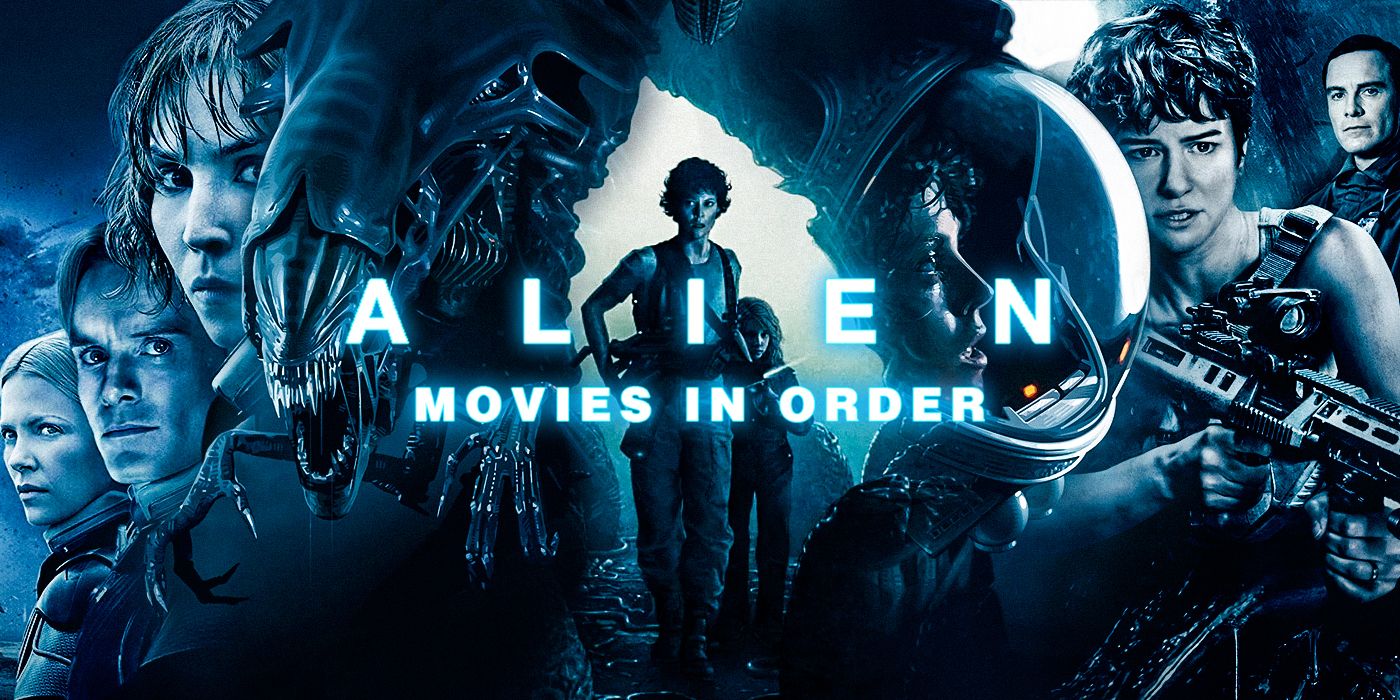
Keanu Reeves, an actor whose career is as storied as the sagas he inhabits, has cultivated a rare reputation for both artistic integrity and box-office appeal. His choices often reflect a deep commitment to narrative and character. Yet, in a Hollywood landscape perpetually chasing sequels, Reeves has demonstrated a discerning eye, famously declining lucrative opportunities when the creative vision didn’t align.
His journey through *The Matrix* universe offers a fascinating study in an actor’s bond with a groundbreaking franchise. Fans and critics have often pondered the precise calculus behind his decisions to return to Neo’s iconic journey, especially given the almost two-decade gap before *The Matrix Resurrections* and current buzz around another installment. It’s a testament to the enduring power of these stories and Reeves’s profound respect for their visionary creators.
To understand the motivations behind his commitment, we must delve into a history of calculated risks, unwavering artistic conviction, and an almost familial loyalty to the architects of the Matrix. This exploration will examine the very foundation of his choices across multiple chapters, uncovering the truths that compelled him to plug back in.

1. **Keanu Reeves’s Stance on *Speed 2*: Script Quality as a Deciding Factor.**Keanu Reeves’s career is marked by a pivotal decision regarding a sequel many expected him to embrace: *Speed 2: Cruise Control*. This film, attempting to capitalize on its predecessor’s success, ultimately became a critical and commercial misfire. Reeves’s absence was not scheduling or disinterest, but a profound judgment on the fundamental quality of the script. His discernment set a crucial precedent for his future engagement with established franchises.
He was never coy about his reasons. At the press junket for *The Matrix Reloaded*, Reeves directly addressed his decision, articulating a clear, criteria-based approach. He stated unequivocally, “For *Speed 2*, if there had been a really good script and I had been in a place to do it, I would have done it.” This candid admission underscores a fundamental aspect of his decision-making: the script serves as the indispensable bedrock for compelling cinema. It wasn’t merely about availability; it was about artistic merit.
The contrast with *The Matrix* sequels becomes apparent. While *Speed 2* tried to replicate the original’s formula by simply placing characters on “another speeding vehicle,” it conspicuously lacked the narrative depth, thematic resonance, and innovative spirit Reeves prioritizes. He implicitly critiques this superficial approach, highlighting how simple rehashes fail to capture imagination or offer genuine progression.
His rejection of *Speed 2* was less about a general aversion to sequels and more about a principled stand against a film that failed to evolve or offer a truly engaging story. This early career decision cemented his reputation as an actor driven by artistic integrity, establishing a crucial lens to view his enthusiastic returns to the Wachowskis’ imaginative world, signaling his involvement was always contingent on narrative excellence.
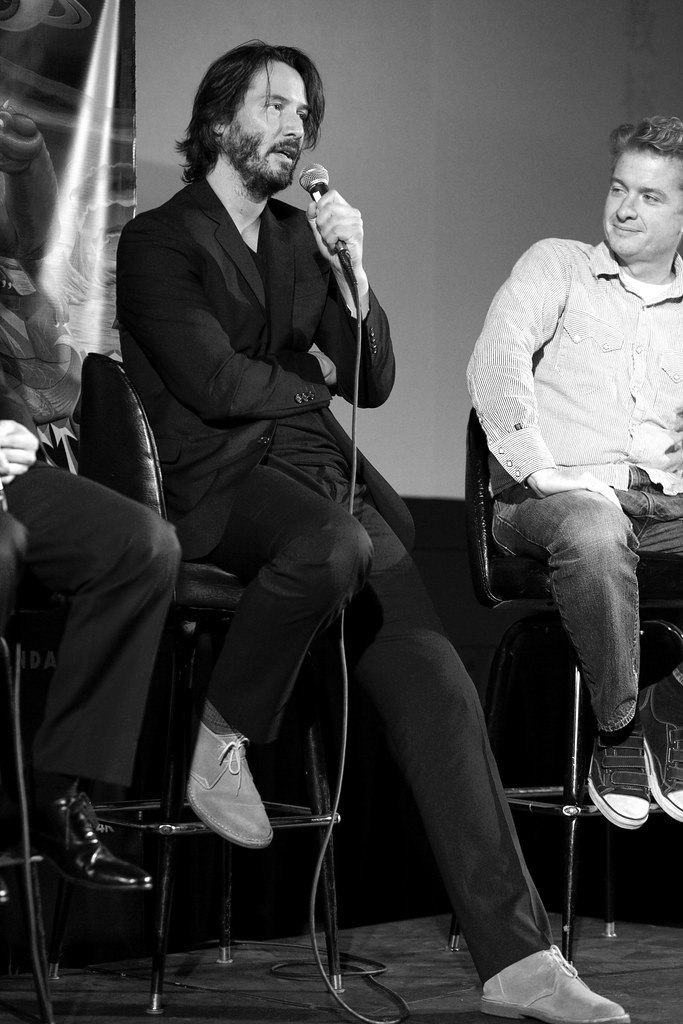
2. **The Transformative Power of the Wachowskis’ *Matrix Reloaded* Scripts.**The landscape for *The Matrix* sequels was vastly different from *Speed 2*. After the groundbreaking success of the original 1999 film, which redefined science fiction cinema, expectations for *The Matrix Reloaded* and *The Matrix Revolutions* were astronomically high. Lana and Lilly Wachowski, the visionary creators, approached these follow-ups not as simple commercial ventures, but as genuine continuations that would ambitiously deepen and expand the intricate, philosophical mythology they had so brilliantly established, presenting a unique creative challenge.
Reeves himself vividly recounted his initial encounter with these scripts, an experience that evidently left an indelible mark. He recalled being “in Chicago and I got the two scripts, sat down and read them and thought they were very moving and exciting and original.” This profound reaction speaks volumes about the scripts’ inherent quality and their powerful capacity to genuinely surprise and engage even the lead actor.
His immediate impression was that the Wachowskis had “done such an incredible job,” highlighting the formidable creative ambition woven into every page. For Reeves, the appeal of returning wasn’t merely the continuation of a massively successful franchise, but the profound promise of “really great surprises” and a story that genuinely pushed conceptual and narrative boundaries. He recognized the rare opportunity to participate in a cinematic event that was both a continuation and a bold new exploration.
This exceptional creative satisfaction stood in stark contrast to the perceived shortcomings of the *Speed 2* script, solidifying his conviction that the Wachowskis were offering something truly special and artistically worthwhile. His eagerness to plunge back into the Matrix was not a reluctant obligation, but an enthusiastic response to a story promising to be as rich, complex, and thought-provoking as the original, further cementing his artistic alliance with its creators.

3. **Unwavering Faith in the Vision of the Wachowski Sisters.**Beyond the captivating scripts, a critical component of Keanu Reeves’s decision to return for *The Matrix Reloaded* and *Revolutions* was his deep, personal, and professional trust in the Wachowski sisters. This faith extended beyond their writing prowess; it encompassed their formidable directorial vision and their unique ability to translate complex philosophical ideas and groundbreaking visuals into compelling, immersive cinematic experiences. Having worked closely with them on the original, Reeves witnessed firsthand their exquisite artistry and unwavering commitment to pushing cinematic boundaries.
He explicitly articulated this profound trust at the *Matrix Reloaded* press junket, emphasizing, “I had such a great experience and faith and believe in [Lana and Lilly] Wachowski, the writers and directors that I just said yes.” This statement is far more than a polite acknowledgment; it speaks to a fundamental alignment between actor and director, a shared understanding of the ambitious creative endeavor. It suggests Reeves not only admired their talent but also believed wholeheartedly in their singular capacity to execute visionary concepts with unparalleled skill and integrity.
This unwavering belief in the Wachowskis provided a crucial counterpoint to his reluctance concerning *Speed 2*. Where *Speed 2* demonstrably lacked a compelling script and a directorial vision that could elevate its premise, *The Matrix* sequels were blessed with both in abundance. Reeves’s conviction in the sisters’ ability to deliver something artistically extraordinary transformed a professional commitment into an enthusiastic personal endorsement, making his return to the Matrix an almost inevitable conclusion, driven by profound artistic respect.
His faith in their unique method of storytelling was a non-negotiable factor. He understood that with the Wachowskis at the helm, the sequels would not merely revisit familiar territory but would bravely venture into new thematic and visual landscapes, ensuring his portrayal of Neo would remain fresh and challenging. This deep-seated confidence served as a powerful incentive, allowing him to immerse himself fully, confident the final product would be a work of genuine artistic merit.
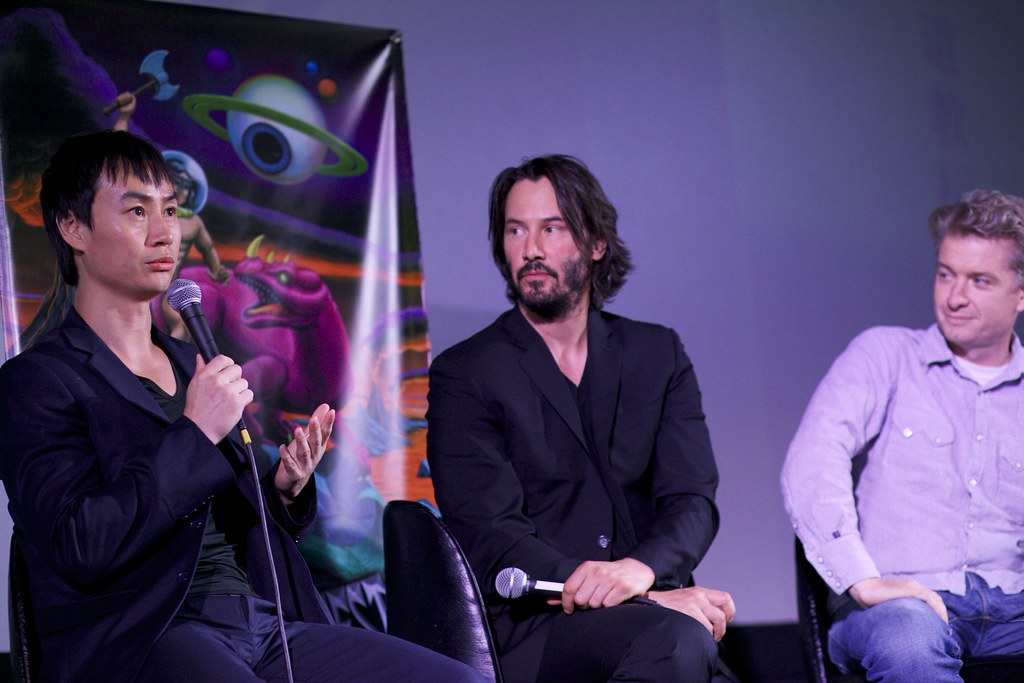
4. ***The Matrix Reloaded*: A True Continuation, Not a Mere Rehash.**One significant pitfall for sequels, often exemplified by *Speed 2*, is the temptation to simply rehash previous successes without offering genuine narrative progression. *The Matrix Reloaded*, however, was conceived as something far more ambitious: a profound deepening of the original story’s intricate tapestry rather than a superficial repetition of its core premise. This nuanced approach to storytelling was a key factor in securing Keanu Reeves’s continued commitment and enthusiastic participation.
Reeves articulated this crucial distinction with remarkable clarity, stating, “I think it is more of a continuation.” He deliberately moved away from the notion that the film was “seeking to set itself apart” or “trying to be something different” for novelty alone. Instead, his understanding was that the sequels were fundamentally “just trying to develop what the story is telling,” emphasizing organic growth rather than forced reinvention. This intent to meticulously build upon the established narrative, exploring its latent possibilities and addressing unresolved philosophical questions, precisely captivated him.
He famously concluded his thought by saying, “If anything, you’re getting into the meat of the story.” This vivid phrase encapsulates the profound narrative ambition driving *The Matrix Reloaded*. It underscored that the film wasn’t merely about another high-speed chase; it was about delving substantially deeper into the complex philosophical underpinnings, richly developed characters, and the escalating, world-altering conflict that defined the Matrix universe. For Reeves, this promised significant evolution, not mere imitation, offering a richer, more challenging, and ultimately more substantial acting experience.
This pursuit of narrative depth and thematic expansion was paramount. It demonstrated that the Wachowskis were not content to simply rest on their laurels but were dedicated to pushing the boundaries of their own creation, ensuring the saga of Neo and the human resistance continued to resonate with fresh insights and compelling new challenges. Reeves’s embrace of this vision confirmed his role as an actor deeply invested in the intellectual and emotional progression of the story.
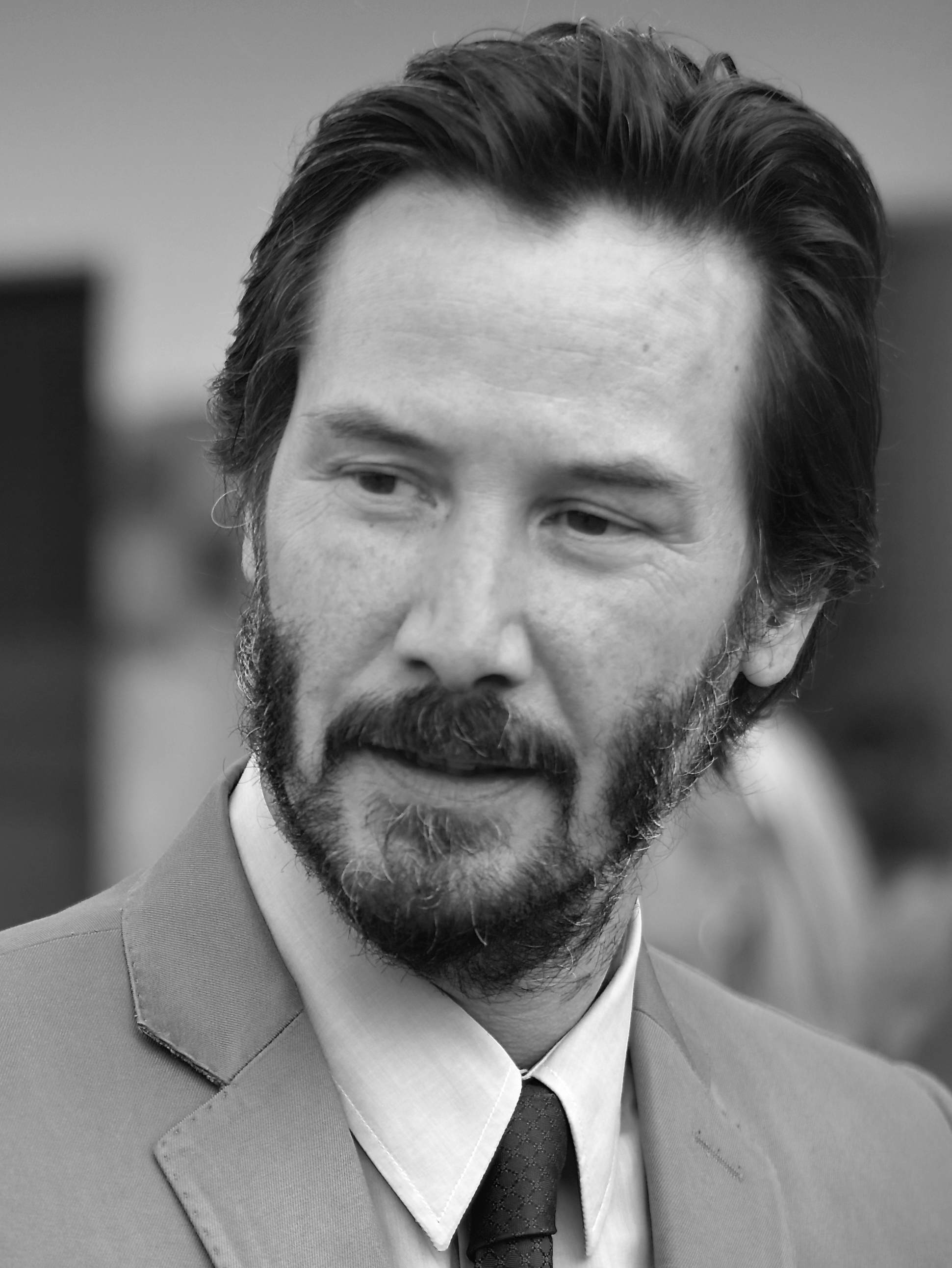
5. **Reeves’s Enduring Love for the Original *Matrix* Sequels Despite Fan Division.**The release of *The Matrix Reloaded* and *The Matrix Revolutions* in 2003 was met with a whirlwind of anticipation, followed by significantly divided critical and fan reception. While *Reloaded* garnered a mixed response, *Revolutions* often faced harsher judgment, with many fans expressing misgivings and disappointment. Yet, through this tumultuous period, Keanu Reeves’s personal conviction and profound affection for the films remained steadfast, a testament to his unique perspective and unwavering commitment to the artistic endeavor, irrespective of popular opinion.
During a press junket for *Something’s Gotta Give*, held after both *Matrix* films had opened and public reaction solidified, Reeves learned for the first time that “Matrix fans disapproved of the sequels.” His response, however, was not defensive, but deeply reflective. He stated with genuine warmth, “I had the most amazing time working on those beautiful films and some of the best days of my life as a person and an actor.” This profound personal experience transcended public opinion, highlighting the deep satisfaction he derived from the collaborative process itself.
He reiterated his fundamental belief in their artistic merit, declaring unequivocally, “I think they’re remarkable films.” Reeves then offered insightful advice for appreciating any work of art, noting wisely that “people are divided about any work of art or actually anything.” His suggestion to those who didn’t initially connect with the films was equally telling: “I hope that people, if they saw the films, enjoyed them, got something from them. And if you didn’t the first time, watch it again because they deserve a second viewing.”
This unwavering defense and earnest encouragement reflect a deep personal pride in the work and an artistic conviction that stood firm against popular sentiment. It showcases Reeves not just as an actor, but as an artist who genuinely believed in the vision and execution of these ambitious films, inviting audiences to engage with the narratives on a deeper, more thoughtful level.

6. **The Allure of Lana Wachowski’s “Beautiful Script” for *The Matrix Resurrections*.**Nearly two decades after *The Matrix Revolutions* seemingly brought Neo’s journey to a definitive close, the announcement of *The Matrix Resurrections* came as a genuine and significant surprise. Keanu Reeves’s decision to reprise his iconic role as Neo for a fourth time was, once again, rooted firmly and exclusively in the exceptional quality of the script, meticulously penned by Lana Wachowski, who bravely took on the sole directorial helm for this installment. This “beautiful script” proved to be the undeniable and compelling catalyst for his unexpected return.
In an illuminating interview with Empire magazine, Reeves unequivocally articulated the core of his motivation: “Lana Wachowski wrote a beautiful script and a wonderful story that resonated with me. That’s the only reason to do it.” This powerful declaration leaves no room for ambiguity; his involvement was not driven by contractual obligations or career resurgence. It was, purely and profoundly, about the inherent strength and imaginative power of the narrative itself, masterfully crafted by the original visionary.
The description “beautiful script” itself suggests a work of profound artistic merit, one that not only captured his discerning imagination but also spoke to him on a deeply personal and intellectual level. For an an actor of Reeves’s extensive experience, such an unqualified endorsement carries immense weight. It underlines that *Resurrections* offered far more than just a routine continuation; it presented a genuinely compelling, thoughtfully structured story, providing ample justification for revisiting such an iconic character and the meticulously constructed world he inhabits.
Furthermore, his desire “To work with her again is just amazing. It’s been really special,” points to the deep professional and personal rapport he shares with Lana Wachowski. This collaborative synergy, combined with the script’s promise of “meaningful things to say, and that we can take some nourishment from,” solidified his decision. It reflected a yearning not just to perform, but to contribute to a narrative that offered intellectual and emotional sustenance, reaffirming his dedication to projects that resonate beyond mere entertainment.
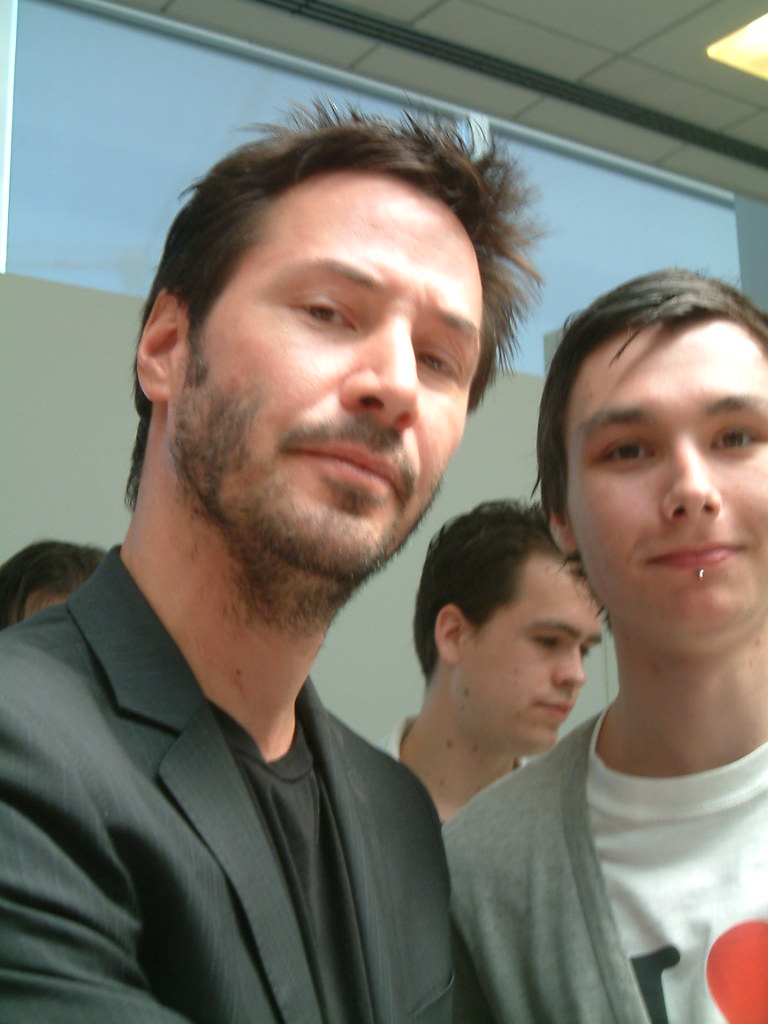
7. **The Thematic Depth and Personal Resonance of *The Matrix Resurrections***Having established that Lana Wachowski’s script for *The Matrix Resurrections* was the sole, undeniable reason for Keanu Reeves to plug back into the digital realm, it becomes imperative to delve into the intrinsic nature of this “beautiful script.” Reeves himself alluded to the narrative’s profound capacity to offer “meaningful things to say, and that we can take some nourishment from,” suggesting a layered richness that transcended mere spectacle. This implied depth points to a story that resonated not just on a superficial plot level, but touched upon deeper, more universal human experiences.
For an actor of Reeves’s gravitas, whose career choices often reflect a search for artistic substance, this “nourishment” was clearly rooted in the exploration of Neo’s evolved journey. He articulated this personal connection, revealing his return was an opportunity to engage with his own accumulated life experiences. He spoke of the “life experience and all of [what] that entails, the highs and the lows and all of the in-betweens,” indicating that his portrayal of Neo in *Resurrections* was infused with a newfound maturity and reflection, a perspective only time and personal growth could provide.
This introspection manifested as an “examination of the past; how do I feel about it and where am I now.” It was not a simple act of revisiting a beloved character but a thoughtful, almost philosophical, reckoning with his legacy and present state. Reeves clarified that this wasn’t driven by “nostalgia,” but rather a sincere “reflection and a yearning to understand.” This distinguished *Resurrections* from a typical cash-grab sequel, positioning it instead as a meditative journey that aimed to uncover new meaning within the familiar narrative framework.
Further reinforcing this theme of profound personal connection, Lana Wachowski herself revealed the intensely personal genesis of *The Matrix Resurrections*. She openly shared that writing the fourth film became a vital coping mechanism for her immense grief, following the devastating loss of both her parents. This deeply human motivation imbued the narrative with an emotional sincerity and thematic resonance that transcended typical blockbuster fare, making the film a testament to love, loss, and the enduring power of connection, elements that undoubtedly contributed to its “beautiful” quality.

8. **Carrie-Anne Moss’s Unexpected Return and the Script’s Integrity**Keanu Reeves’s commitment to *The Matrix Resurrections* was, of course, inextricably linked to the return of his co-star, Carrie-Anne Moss, in her iconic role as Trinity. Her participation was equally crucial, not just for narrative continuity but for maintaining the emotional core of the franchise. Given the seemingly definitive conclusion of *The Matrix Revolutions* — a film that appeared to tie up Neo’s journey quite resolutely — the very notion of a fourth installment, let alone one that brought back its central duo, was nothing short of astonishing.
Moss openly shared her initial reaction to the prospect of *The Matrix 4*, admitting, “I never thought that it would happen. It was never on my radar at all.” This sentiment perfectly encapsulated the widespread surprise felt by fans and industry observers alike. Yet, her skepticism was ultimately overcome by the very same force that compelled Reeves: the exceptional quality of Lana Wachowski’s script. She described the script as being presented to her “with incredible depth and all of the integrity and artistry that you could imagine.”
This ringing endorsement from Moss speaks volumes about the screenplay’s ability to genuinely surprise and profoundly move its participants. For her, accepting the role was not a mere professional obligation but an affirmation of its artistic merit, describing her return as “a gift.” This powerful phrasing underscores the rare opportunity the project represented, transforming what might have been a simple commercial venture into a deeply personal and creatively satisfying endeavor for the actors involved, driven by genuine artistic conviction.
The undeniable chemistry between Reeves and Moss, and the enduring love story of Neo and Trinity, are cornerstones of *The Matrix* saga. Their reunion in *Resurrections* was not just a narrative choice but a profound emotional anchor, allowing the film to tap into the powerful themes of connection and rekindled purpose. It was this integral partnership, resurrected with such thoughtful narrative depth, that truly solidified the film’s unique appeal and justified its unexpected existence.
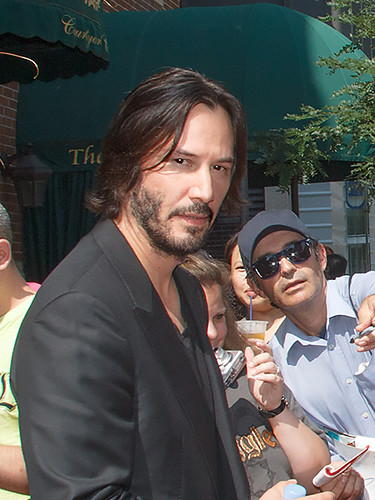
9. **_Resurrections_ Meta-Narrative: A Commentary on Hollywood and Grief**Beyond its core narrative, *The Matrix Resurrections* presented a fascinating meta-commentary, weaving in self-referential elements that offered a critique of Hollywood’s relentless pursuit of intellectual property. The film famously depicts Neo living a seemingly ordinary life as a renowned video game designer, having created a hugely popular game series titled “The Matrix.” This ingenious plot device allowed the film to address, head-on, the very reasons for its own existence.
Within this meta-narrative, Neo’s character is subjected to pressure from his fictional corporate overlords, explicitly identified as Warner Bros., to create a sequel to his celebrated game. This directly mirrored the real-world pressures Lana Wachowski faced to continue the franchise, a process she had previously expressed reluctance towards. This playful yet pointed critique highlighted the commercial imperatives that often drive artistic decisions in the film industry, offering a rare glimpse into the often-unseen mechanics behind blockbuster filmmaking.
However, this meta-commentary was not merely a cynical industry observation; it was deeply intertwined with Lana Wachowski’s personal journey of grief. As previously noted, she found solace and a creative outlet in writing *Resurrections* following the deaths of her parents. This profound personal tragedy infused the film with an emotional urgency, transforming its exploration of reality, identity, and connection into a deeply cathartic experience for its creator.
Thus, *The Matrix Resurrections* became a complex tapestry, simultaneously a continuation of a beloved saga, a sharp satire of corporate sequel culture, and a deeply personal exploration of loss and the enduring power of love to reconnect us. This multi-layered approach underscored the Wachowskis’ signature blend of high-concept philosophy and intimate human drama, delivered through a uniquely self-aware cinematic lens that bravely challenged the very premise of its own creation.
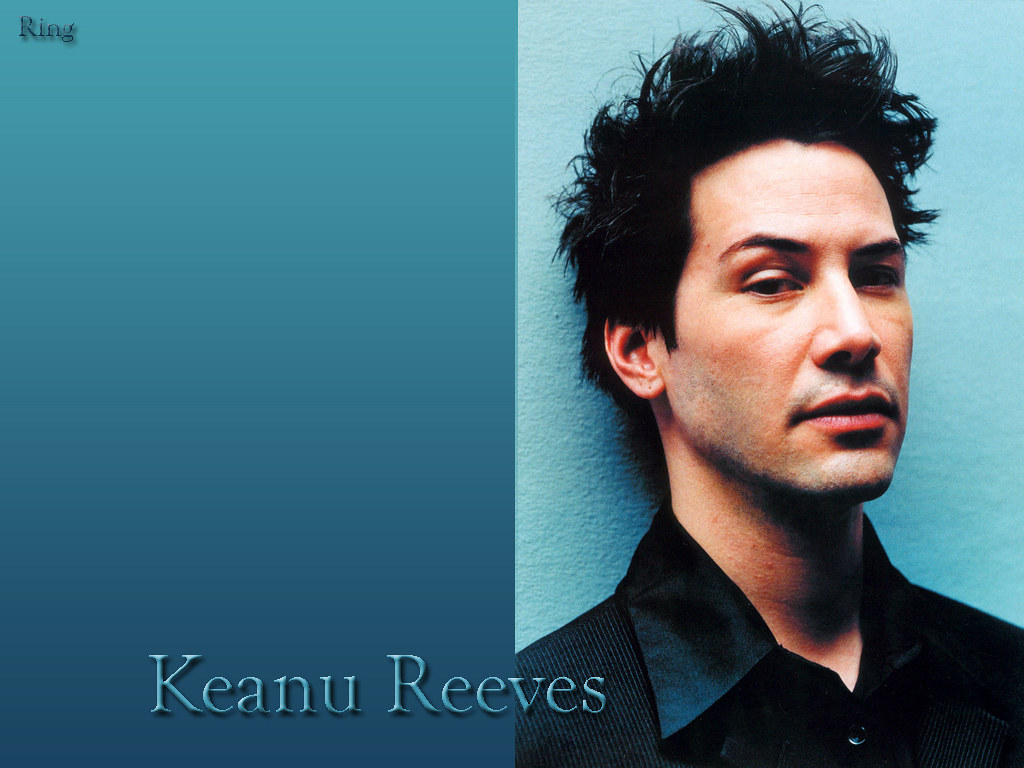
10. **The Mixed Reception and Box Office Realities of *The Matrix Resurrections***Upon its release in 2021, *The Matrix Resurrections* faced a landscape of immense expectation, similar to its 2003 predecessors, but perhaps with an added layer of skepticism after such a long hiatus. The film’s reception was, predictably, significantly divided among critics and long-time fans. While some lauded its audacious meta-narrative and deeply personal themes, others found its execution convoluted or felt it failed to recapture the groundbreaking magic of the original trilogy, leading to a polarizing discourse.
Commercially, the film encountered substantial challenges. *The Matrix Resurrections* struggled at the global box office, grossing only $37 million at the domestic box office. This performance was undoubtedly impacted by its simultaneous release on HBO Max, a strategy Warner Bros. employed for all its 2021 films amidst the evolving pandemic landscape. While this dual-release model broadened accessibility, it also arguably cannibalized theatrical earnings, leading to financial outcomes that fell short of studio expectations for a franchise of this magnitude.
Despite the commercial struggles and mixed popular opinion, critical appraisals often highlighted specific strengths. NME, for instance, in its three-star review, acknowledged the film’s “inventive fight scenes,” noting them as “definitely bracing if you’ve seen one too many toothless superhero movies.” The review also pointed out “some memorable performances” and praised Wachowski for weaving in “timely ideas about human nature and complacency, and the fundamental importance of love,” even if these elements didn’t lead to an “entirely satisfying climax.”
In the immediate aftermath of *Resurrections*’ release, the prevailing sentiment from those directly involved was a sense of closure. Keanu Reeves himself, in an interview on the Empire podcast, suggested that director Lana Wachowski was unlikely to pursue another *Matrix* movie. He stated, “If I had to cast a ballot – no, not a ballot, a vote – I would say that Lana would not do another Matrix.” This was further corroborated by producer James McTeigue, who unequivocally stated, “At the moment, it’s just the movie you’ve seen. We’ve got no prequel in mind. We’ve got no sequel in mind. We’ve got no further trilogy.” This collective stance seemed to draw a definitive line under Neo’s story, at least in its current form.

11. **The Unfolding Speculation: Keanu Reeves and a Potential *Matrix 5***Despite the seemingly definitive statements from Reeves and producer James McTeigue regarding the conclusion of the *Matrix* saga, the digital realm of Hollywood rumors has recently been abuzz with speculation surrounding yet another potential installment. This new wave of chatter suggests a tantalizing possibility: the return of Keanu Reeves as Neo in a fifth *Matrix* film. This unexpected turn has ignited a fresh surge of excitement among fans, hinting that Neo’s journey might not be over after all.
The genesis of this fervent speculation can be traced back to industry scooper Daniel Richtman, who reportedly claimed that Warner Bros. is actively “considering bringing Reeves back for the next Matrix movie.” While no official casting announcements or detailed plot points have been confirmed, the mere idea of Reeves reprising his iconic role has been enough to spark significant online discussion and renewed hope for the franchise’s future. It signals a potential shift from any notions of a complete reboot to a direct continuation of the established narrative.
The significance of Reeves’s rumored return cannot be overstated. He is, in many ways, synonymous with *The Matrix* universe, and his presence would profoundly impact the trajectory of any new film. His involvement could elevate the project from a simple reboot into a legitimate “continuation of Neo’s journey,” especially given the ambiguous yet powerful ending of *The Matrix Resurrections*. This ending left Neo and Trinity poised to reshape the Matrix, hinting at an evolved, almost “godlike form” for Neo within the simulated reality, thus opening up rich and complex new storytelling avenues.
This potential new chapter also marks a significant directorial transition. For the first time in the franchise’s history, the upcoming installment is slated to be directed and written by Drew Goddard, renowned for films like *The Cabin in the Woods* and *The Martian*. Notably, while the Wachowski sisters have been the singular creative force behind all previous entries, Lana Wachowski is set to serve as an executive producer, maintaining a connection to the visionary architects of the Matrix. This shift in leadership, coupled with Reeves’s potential return, positions the franchise at a fascinating crossroads.
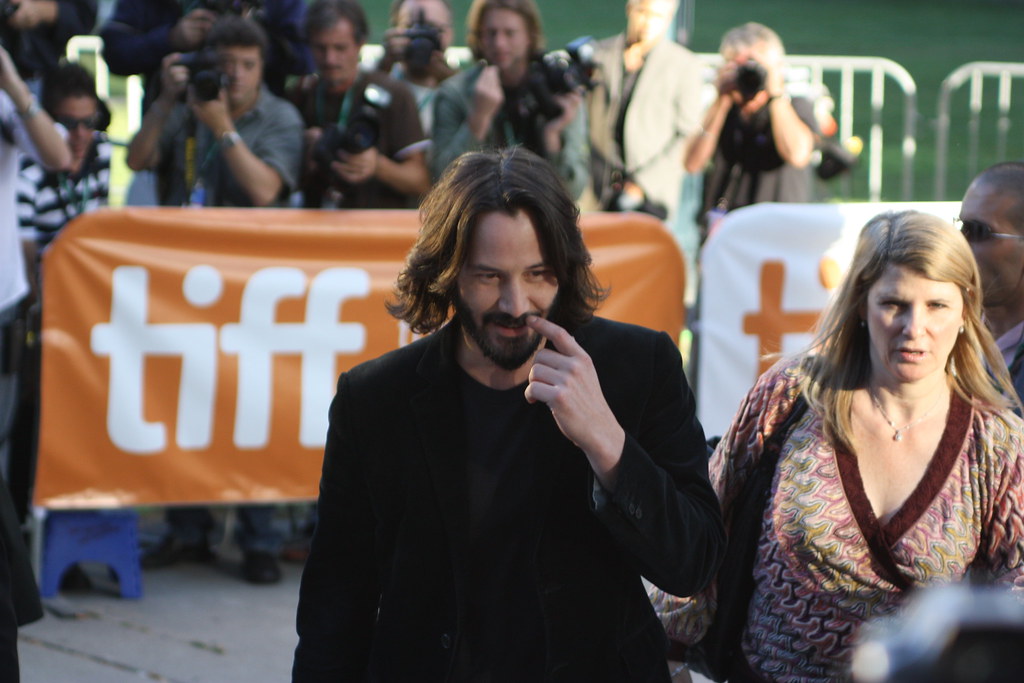
12. **Drew Goddard’s Vision: Honoring Legacy, Forging a New Path**Drew Goddard, the acclaimed writer and director now at the helm of the potential new *Matrix* film, has made his deep reverence for the franchise unequivocally clear. He articulated his profound connection to the original films, stating, “It’s not hyperbole to say The Matrix changed both cinema and my life.” This heartfelt declaration reassures fans that the project is in the hands of someone who understands the monumental cultural and artistic impact of the Wachowskis’ creation. Goddard’s stated intent is to “honor the franchise’s legacy rather than replace it,” suggesting a collaborative spirit that seeks to build upon, rather than dismantle, the established mythology.
Warner Bros. Motion Pictures President of Production, Jesse Ehrman, reinforced this vision, explaining that Goddard approached the studio with “a new idea that we all believe would be an incredible way to continue the Matrix world.” This idea, Ehrman emphasized, would achieve a delicate balance: “by both honoring what Lana and Lilly began over 25-years ago and offering a unique perspective based on his own love of the series and characters.” This suggests a careful crafting of a narrative that respects its origins while boldly venturing into fresh thematic and conceptual territory, a challenging yet potentially rewarding approach.
The crucial question that remains is whether this new film will emerge as a direct sequel, a complete reboot, or perhaps something entirely novel—a “legacy sequel” that bridges the gap between old and new. Goddard’s impressive track record, characterized by his ability to seamlessly blend intricate action with high-concept, philosophical ideas, positions him as an ideal choice to navigate the complex, cerebral world of *The Matrix*. His past works demonstrate a knack for pushing genre boundaries while maintaining intellectual rigor, a perfect fit for the franchise’s enduring appeal.
Online reactions to the rumors of Reeves’s return and Goddard’s involvement have been overwhelmingly positive, reflecting a collective eagerness for the franchise to evolve authentically. Fans are hopeful that Reeves’s participation would ensure “narrative continuity and emotional depth,” believing that his return would “lend credibility to the project and connect new installments with the original trilogy’s core.” This enthusiastic reception underscores the powerful emotional bond audiences share with Neo and the profound universe he inhabits, emphasizing the importance of thoughtful continuation over simple re-imagining.
As production details continue to unfold, the specific plot of this next *Matrix* chapter, and whether other beloved cast members like Carrie-Anne Moss will join Reeves, remain under wraps. The mystery surrounding these elements only amplifies the anticipation, ensuring that the legacy of *The Matrix* continues to captivate and provoke thought. The ongoing speculation speaks volumes about the enduring power of a story that, much like the Matrix itself, consistently reinvents its own reality while staying true to its profound philosophical heart.
Keanu Reeves’s journey through *The Matrix* saga has always been a testament to artistic conviction and loyalty to a singular vision. From his principled rejection of *Speed 2* to his heartfelt return for *Resurrections* driven by Lana Wachowski’s profound script, his choices have consistently prioritized narrative depth over commercial expediency. Now, as new rumors swirl around a potential fifth installment under Drew Goddard’s respectful direction, the truth behind Reeves’s decisions continues to underscore a profound respect for the universe that redefined cinema. It’s a journey that reveals not just an actor’s commitment, but a true artist’s unwavering dedication to stories that resonate, challenge, and ultimately, nourish the human spirit.


